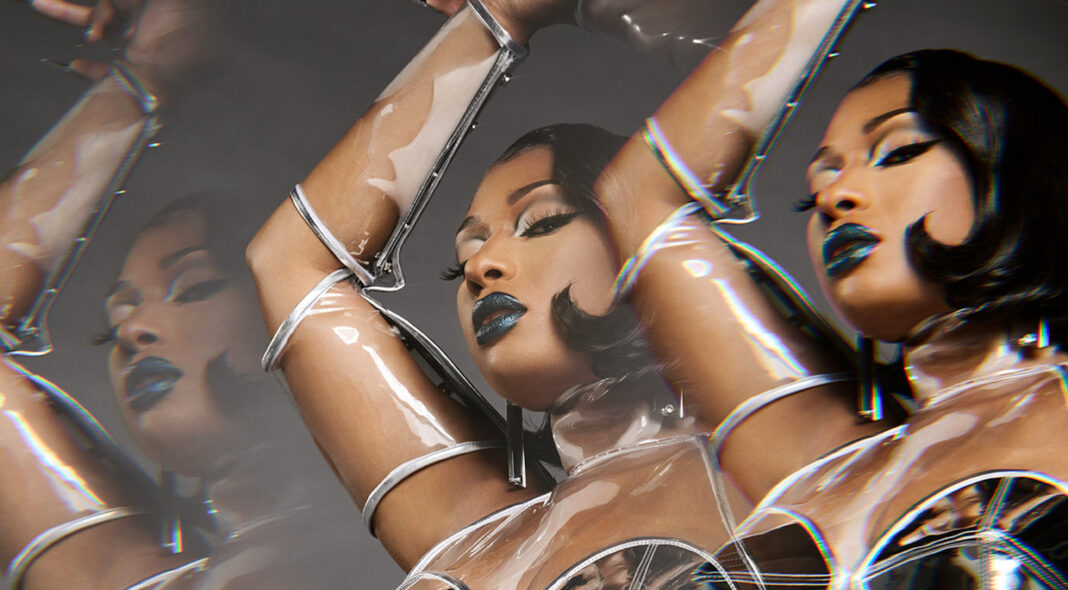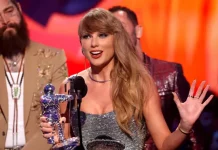On the night of July 12, 2020, Megan Thee Stallion was riding in a car after a party in the Hollywood Hills. An argument broke out with fellow rapper and passenger, Tory Lanez after Megan thee Stallion allegedly cast doubt on his rapping ability. He became angry and she exited the car, but when she turned back around, he had aimed a gun at her feet, allegedly dispatching a bullet with the words “dance bitch”. Megan Thee Stallion reportedly required surgery for the incident, kept in hospital for four days.
This week, Lanez was found guilty of three felony charges in relation to that night — assault with a semiautomatic handgun, possession of an unregistered firearm in a vehicle, and discharging a firearm with gross negligence. As such, Tory Lanez, whose real name is Daystar Peterson, has been sentenced to 10 years in jail; a lesser ruling than the 13 that prosecutors reportedly requested, but a substantial stretch all the same.
The verdict closes what has become one of the most high-profile court cases of gendered celebrity violence in recent years, bringing about a rarely-seen case of justice for Black womanhood. Right across social media, fans have shown their gratitude that Peterson is being appropriately punished for his crimes, relieved (if a little surprised) that the case is finally closed. But even in spite of official sentencing, there is still an equally-huge bank of social media users who are defending his innocence, still believing Megan Thee Stallion to be a man-hating liar.
This reaction mirrors years of reportage on the case, influenced by notable court delay and damaging degrees of sexist misinformation. Lanez has consistently insisted upon his innocence, so judges were not able to hold his lack of remorse in mind when deciding the severity of his sentence. But they did reportedly contend with evidence of Lanez’s repeated attempts to intimidate Megan The Stallion, to financially bribe both her and her peers into silence, and to encourage others to cast public doubt on whether she was shot at all.
Though Megan declined to appear in court for Lanez’s sentencing, she used a court-read statement to emphasise this point: “He paid bloggers to disseminate false information, he treated my trauma like a joke when I could’ve been dead. He blamed the system, he blamed the press, and as of late he is using his childhood trauma to justify his actions… his crime warrants the full weight of the law.”
Those following the case many remember that Megan Thee Stallion initially told police on the scene that night that she had merely trodden on some glass, seemingly feeling some empathy in the moment for Lanez in 2020’s climate of particularly-heightened racial tension. But when Lanez released his album Daystar that same year, protesting his innocence and alluding to Stallion’s deceit, she was drawn into the narrative anyway, depicted in the hip-hop media as a villain. Whether it was willful conjecture by fans or bloggers masquerading as investigative journalists with no ethical code of conduct, Megan Thee Stallion was subject to a near-unprecedented level of online gossip, laughing at her injury or perpetuating gross narratives of attention-seeking black women who cry abuse at whim.
Even as recently as 2023, artists as big as Drake were using her name as a cheap lyrical punchline, spicing up otherwise unremarkable records.
Of course, the misogyny that is aimed at female artists is not a problem exclusive to hip-hop culture. But while public figures such as Cardi B, Ethel Cain and MeToo founder Tarana Burke have shown their vocal solidarity to Megan, she still can’t necessarily rely on the full support of her fellow rappers. Much discussion has taken place this week with regards to Iggy Azalea, who was one of the reported 75 people who wrote a letter to Lanez’ judge to argue for a more lenient sentence. “He’s always been incredibly respectful of me and I refuse to believe that he would do anything in malice especially to a woman,” she wrote. While Azalea has every right to argue for more restorative forms of justice, her statement once again serves to demonstrate what Black women are up against — no understanding of the misogynoir that might explain why Lanez has been ‘good’ to Azalea in ways that he hasn’t been to Stallion and no sense of recognition that a truly ‘peaceful’ man is not the kind who would resort to gun violence or online doxxing when his musical ego is threatened. It’s one thing to support your friend, but to claim that there is no evidence of his malice feels like a purposeful insult, magnified in the instance of shared womanhood.
Though the internet might have made Lanez Vs. Stallion into a meme, there is of course nothing funny about a situation like this. The sight of another Black man condemned to jail is a crude opportunity for joy, but if the case can teach us anything as music fans and writers, it is that there are important lessons to be learnt about misinformation, about the tastefulness of treating celebrity court cases as entertainment, and about showing victims the respect they deserve during the process of legal investigation. By mocking and de-humanising both sides of the prosecution, rap media and fans alike have played their part in perpetuating an industry which already tends to treat Black artists as scandalised spectacle, waiting eagerly to see how they ‘act out’ next. By opting into this narrative, we make it near impossible for court cases to be dealt with swiftly, or for Black people from all walks of life to feel that they would be taken seriously in the eyes of the law.
Stallion has been open about her need to heal at her own pace, to progress beyond media narratives that only discuss her in relation to her pain. Though fans may understandably want to show their support, there are ways of doing so that focus more on her well-being than on her supposed ‘triumph’ — after all, true justice would mean that she was never shot at all. Until she is personally ready to return with the musical strength, wit and resilience that we all know and love her for, the best that we can do for Megan Thee Stallion is to meet her on her own terms — to respect the human behind the Hot Girl, and to let her close this chapter of her life however she may choose.
READ MORE: Megan Thee Stallion, Breonna Taylor and the Memefication of Black Women







